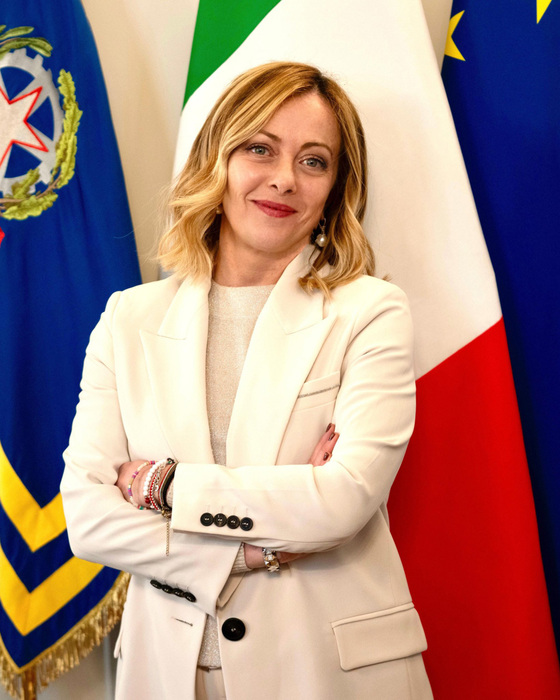We begin this 2022 with the illusion of the progress that has been made to control the covid-19 pandemic.
South America is at the forefront of vaccination worldwide, although much remains to be done and there are many injustices to overcome in terms of the distribution of the vaccine.
The population is exhausted, the consequences on people's mental and physical health are becoming more and more evident, and the economic and social consequences of the health crisis demand even stronger and more urgent actions on the part of national governments and local authorities.
The year also begins with five million more people in extreme poverty, for a total of 86 million in the entire region, according to ECLAC data.
It is a setback that we have not had for at least two decades in the region.
Against this background, these 11 months ahead of us from the perspective of the women of Latin America and the Caribbean generate both challenges and opportunities to take into account and areas that I believe are priorities and in which we will be working from UN Women throughout the anus.
We have pending the great task of eradicating violence against women.
The situation, which was already worrying at the beginning of 2020, worsened in the following months.
More than 4,000 Latin American women were victims of femicide in 2020, according to ECLAC figures.
Calls to domestic violence support lines also increased alarmingly.
Confinement, unemployment and the disproportionate increase in the burden of care contributed to exacerbating the problem.
Women found themselves, suddenly, without jobs, excluded from the informal economy due to security measures, in charge of household chores, to which support for their children was added due to the closure of educational institutions.
As the Secretary General of the United Nations, Antonio Guterres, said, the pandemic represented, in some cases, a setback of up to 10 years in rights already conquered and consecrated for women.
In 2022 it is imperative to overcome this lag.
Not to return to the situation of two years ago, which was already bad, but to make it even better and advance the necessary transformations for fairer and more inclusive societies.
Women are the first to lose the possibility of continuing to generate an income, girls are the first to drop out of school
I wrote these lines while watching the news the terrible consequences of the rains in Quito and São Paulo, with a toll of dozens of people dead, families displaced and homes destroyed.
And as always, women and girls are the most vulnerable in this type of situation.
Women are the first to lose the possibility of continuing to generate an income, girls are the first to drop out of school;
when displacement occurs, girls and women are more exposed to the risk of sexual and other types of violence.
2022 has to be the year that we make clear links between the consequences of climate change and its effects on women and girls.
We need specific actions with a gender focus, but also ensure the participation of women's and feminist organizations in the emergency response and reconstruction plans.
We are in the midst of an electoral super cycle in the region, which began in 2021 and will culminate in 2024, with the renewal of almost all Latin American governments, and which will have very long-term consequences in the region.
2022 has to be the year we make clear links between the consequences of climate change and its effects on women and girls
It is a circumstance that we must take advantage of to open spaces for the political participation of women.
We are half the population;
however, at this time there is only one female president on the continent and a few pre-candidates.
We are the region that leads the world in parity indices in parliaments.
Even so, we do not even reach a third of the representation, and there are few countries that have norms, laws and regulations to guarantee equal participation;
and even less those that apply them effectively.
Furthermore, murders, threats, intimidation and online campaigns against women in politics are a painful daily reality in the region.
This should be the year in which we also advance in guaranteeing the participation of women in politics and their leadership in decision-making spaces.
Finally, the great pending task of the digital gender gap.
We live in a region where 40% of households do not have internet access.
This closes possibilities of education, employment and access to other opportunities for women and girls.
It is estimated that the digital revolution accelerated by the pandemic will lead us, in the not too distant future, to 75% of jobs being related to Science, Technology, Engineering and Mathematics (the so-called STEM).
We have to make very big efforts, very committed, but also very well financed to overcome this lag and that there are more and more women and girls online;
and with studies -and jobs- in STEM.
As the title of this column suggests, we have a year full of challenges ahead of us.
Hopefully we achieve the commitment of many governments, international organizations, companies and NGOs so that this is the year in which we begin to overcome them in a more inclusive and equal way.
María-Noel Vaeza
is UN Women Regional Director for the Americas and the Caribbean.
You can follow PLANETA FUTURO on
,
and
, and subscribe
to our 'newsletter'
here
.









